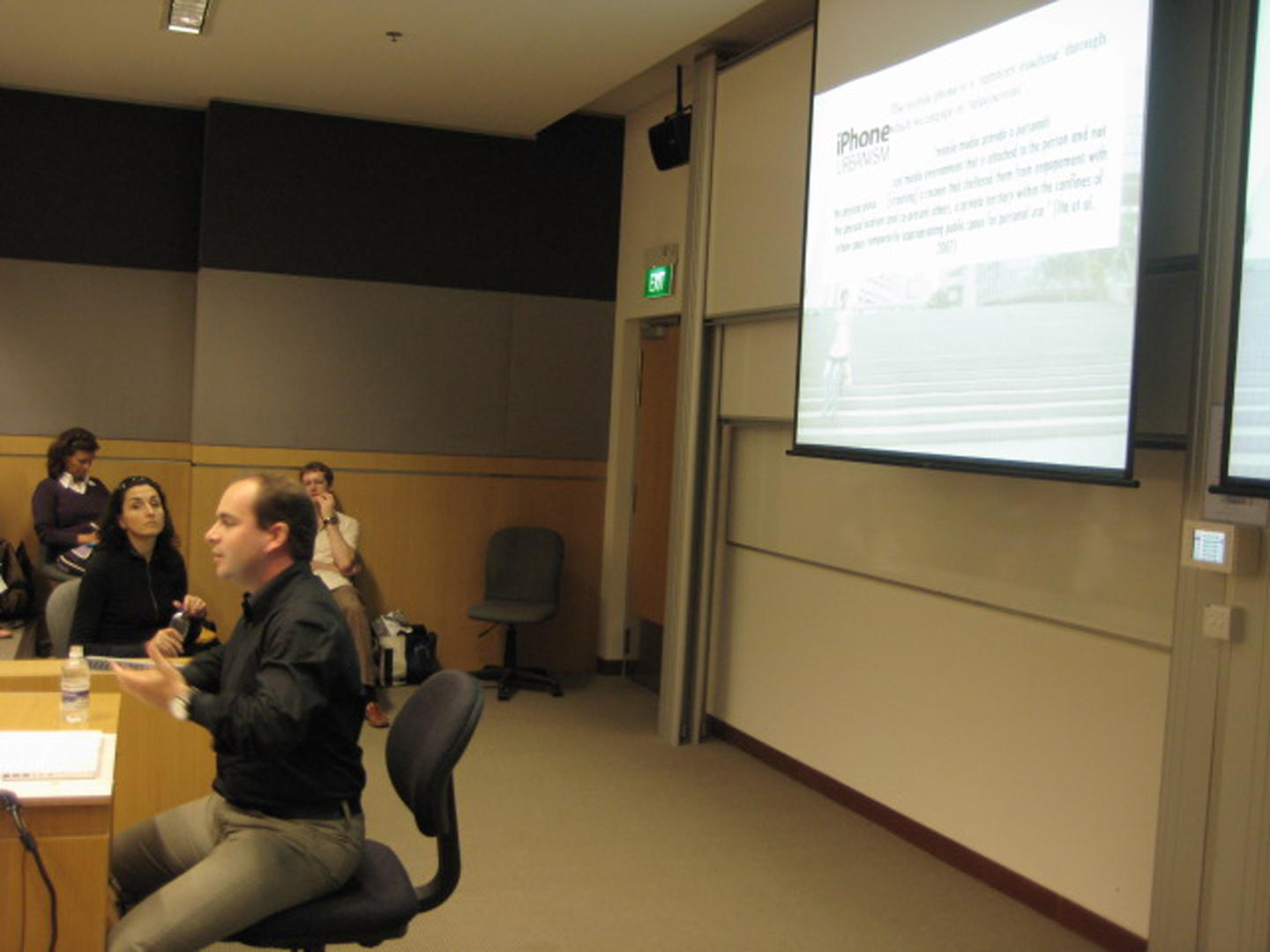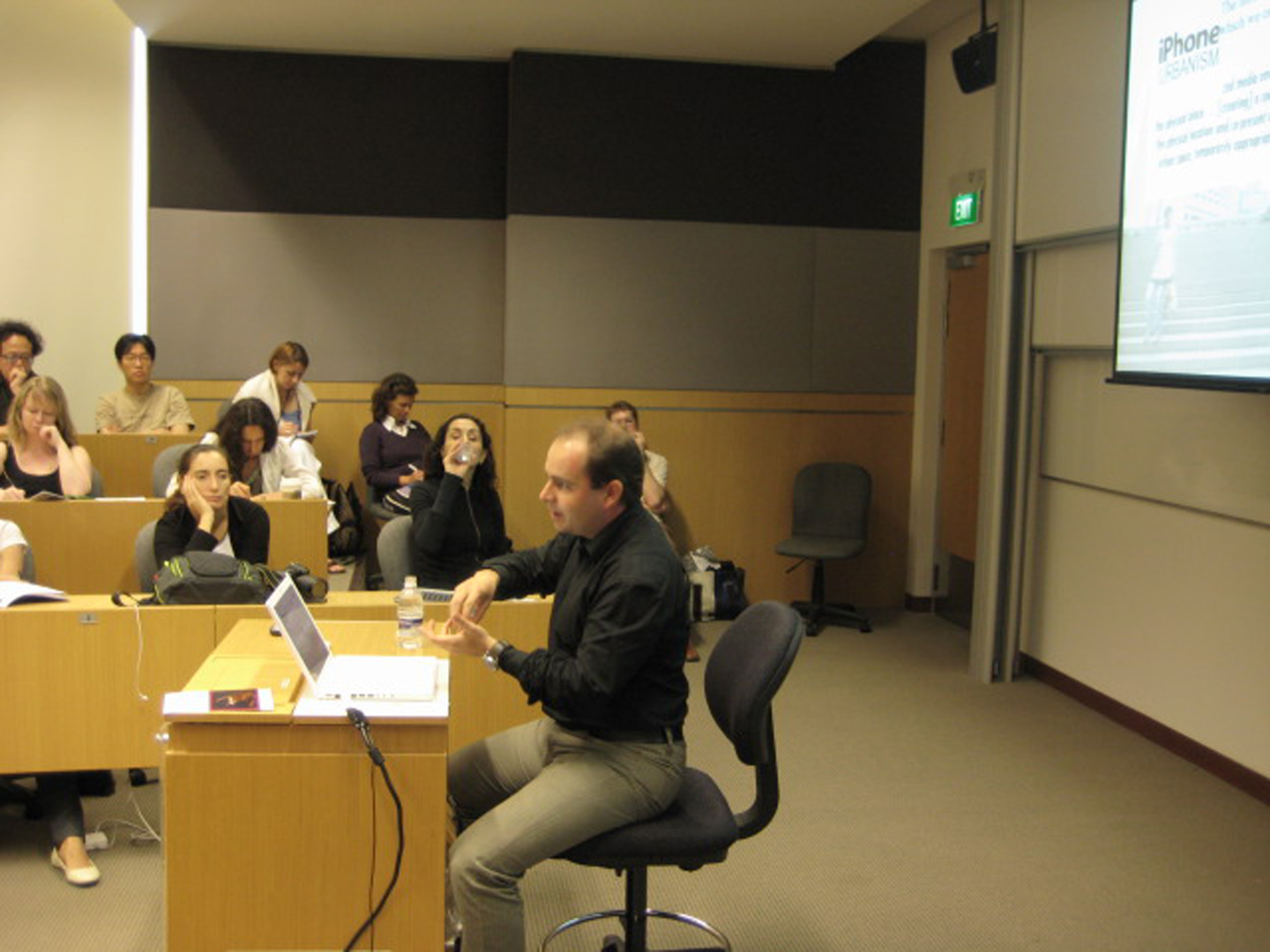“Urban Culture as Interface Culture. Locative Media and the concepts of ‘dwelling’ and ‘public sphere’” presented by de Waal
Symposium:
Session Title:
- Technologies of Place 1
Presentation Title:
- Urban Culture as Interface Culture. Locative Media and the concepts of ‘dwelling’ and ‘public sphere’
Presenter(s):
Venue(s):
Abstract:
In this paper/talk I would like to address the concept of locative media from the perspective of urban culture. My main questions is: how does the emergence of locative media change our understanding of urban culture, and the related concepts of ‘dwelling’ and ‘public space’? With locative media I refer to both artistic locative works that address issues of locality, identity and public sphere and the appropriation of new – often commercial – locative services by consumers/citizens in the practice of daily life.
Urban culture can be understood as the philosophical idea of the city as an ‘organization of differences’. Starting with the Chicago and German School, urbanists have pointed out that the modern city brings together (or according to some – produces) diverse groups of people with diverse backgrounds and different identities, lifestyles and goals. Two concepts play an important part in this definition of urban culture: ‘dwelling’ and ‘public space’. ‘Dwelling’ is the process of ‘making or feeling oneself at home’, the process in which local structures are appropriated or exerted to express or strengthen one’s (group) identity. The public sphere is the place and process of confrontation and exchange, of clashes, innovation, political organization and cultural development.
If locative media offer the possibility to establish new types of mediated geospatial experiences (Bleecker), producing new spatial practices and new interfaces to appropriate space, how then should we re-theorize the concepts of dwelling, public space and urban culture? What part do locative interfaces play in the experience of a localized urban culture? Theories range from optimistic ones (Rheingold’s smart mobs-scenario in which thanks to the mobile phone, location technology and social networks, nobody has to bowl alone anymore) to overtly critical ones, in which ‘software sorted cities’ (Graham) extend current trends of privatization, parochialization and exclusion and disciplinization.






